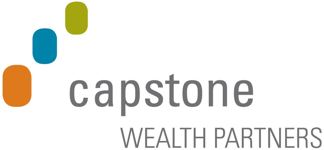NYU Announces Free Medical School Tuition
By Joe Messinger, CFP®
August 30, 2018
Imagine this. You are a new med school student sitting in a room full of other med school students for your White Coat Ceremony–being given your white lab coats, a symbol of the start of your medical education. As part of the program, you are informed that your tuition is now free. Can you just imagine? Well, the New York University School of Medicine did just that and is now waiving tuition for current and future medical school students regardless of need or merit.
“Thanks to the extraordinary generosity of our trustees, alumni, and friends, our hope—and expectation—is that by making medical school accessible to a broader range of applicants, we will be a catalyst for transforming medical education nationwide,” said Kenneth G. Langone, chair of NYU Langone Health’s board of trustees.
How can they do this?
Generous benefactors. Mr. Langone is a co-founder of Home Depot and with his wife donated $100 million to the school. In addition, news agencies are reporting that NYU has raised more than $450 million to fund the program. ($600 million will be needed in total.) The current annual tuition is about $55,000.
What problems are they trying to solve?
We are facing a physician shortage. The Association of American Medical Colleges projects a shortage of between 42,600 and 121,300 physicians by the end of the next decade.
The median student loan debt for graduates of medical school is $192,000 according to the Association of American Medical Colleges.
Faced with that debt load, many believe potential students are either choosing higher paying medical specialities, leaving a shortage of primary care physicians, pediatrics, or ob/gyn doctors, or foregoing medical school all together. Talented potential students simply don’t want that debt load.
Some argue that free tuition will not solve the problem.
Right now there doesn’t appear to be any “strings attached”. Students will still gravitate to those higher paying specialities. The highest average yearly salaries are paid to physicians in the specialities of plastic surgery ($501,000), orthopedics ($497,000), and cardiology ($423,000). Compare those figures to pediatrics at $212,2000 or family medicine at $219,000. If you had the opportunity to more than double your salary what would you do?
It shouldn’t come as a surprise that the overwhelming majority of graduates from the top medical programs go into the most highly skilled and highest paying areas of medicine. It is surprising that there is no stipulation upon graduation that these new docs go into the fields that are desperately in need. Something similar to the TEACH Grant that provides a federal grant of up to $4,000 per year to future teachers. You are subsequently required to work in a high need school for 4 years. If you do not meet the requirement, all of the grants that you accepted become loans with interest accrued. If they really want to incentivize future doctors to go into the lower paying areas of medicine it would only make sense to put something like this in place.
It is worth noting that NYU’s free tuition scholarship is just for tuition. Room and board, books, fees, etc. are not included. New York City is one of the most expensive places to live in the US. NYU lists costs AFTER the tuition scholarship to still be $27,108 per year for first and second year students.
Finally, simply getting into medical school faces several challenges. The number of medical school applications is rising, and the acceptance rate is falling. “The average acceptance rate at these programs (the top 10 primary care programs) nearly halved between 2006 and 2016, falling from 8.8 percent for the class entering in 2006 to 4.6 percent for the class entering in 2016,” according to US News.
At NYU, the “average GPA and MCAT scores for its current first year class are both in the 99th percentile”, and their freshman class size has decreased from 120-130 to just 93. Those changes make it harder for a wide variety of students to win acceptance.
What about other colleges?
Some med schools already provide some financial assistance although not free tuition for all like NYU. Among them are Columbia, UCLA, and Case Western.
We’ll have to see if more medical schools follow suit and whether or not free tuition will help solve the problems. With no real “strings attached” and only a handful of universities joining the movement it is an uphill battle.
RELATED ARTICLES
College Planning
How Your Student Can Gain Valuable Career Experience and Earn a Free Ride to College
November 7, 2024


